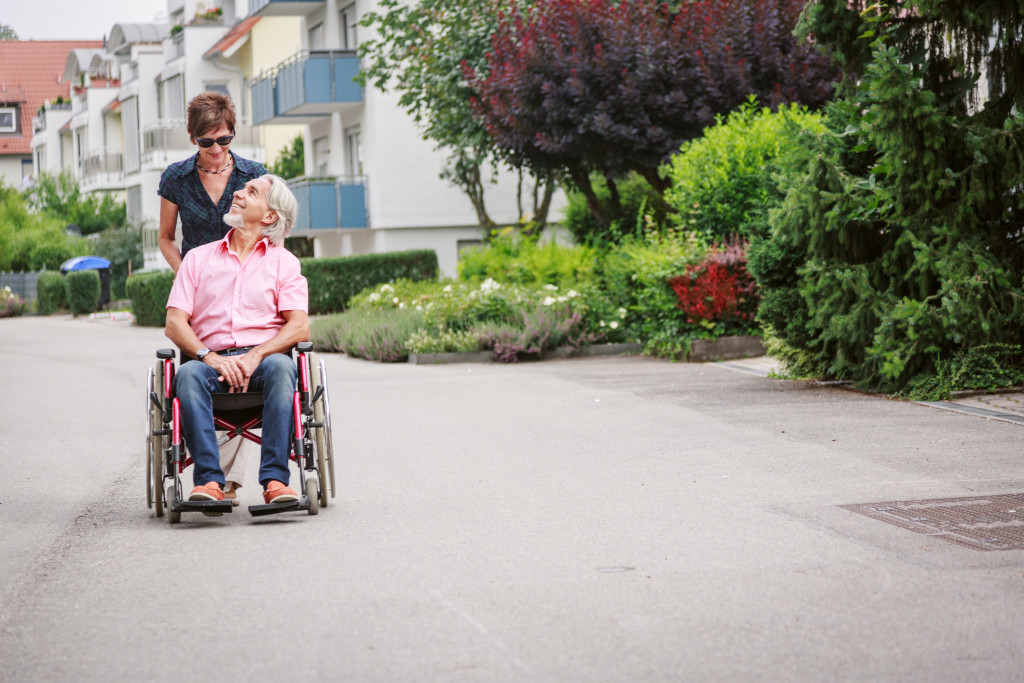• Seniors are at an increased risk of developing specific health problems due to the physiological changes that come with aging.
• To reduce the risk of these illnesses, seniors should stay active through exercise and physical activity, eat a balanced diet and get plenty of sleep.
• Regular check-ups with their doctor and monitoring for signs of potential issues can help seniors catch health problems early.
• With the proper preventative measures, seniors can stay healthy and active for many years!
As people age, their bodies naturally change and face challenges they may not have faced in their younger years. Senior citizens are at an increased risk of developing specific health problems due to the physiological changes that occur with aging.
Common Health Problems Seniors Face
Seniors need to be aware of the most common health issues they are likely to encounter so that they can take the necessary steps to stay healthy and active. Here are the most common health problems faced by seniors today.
Arthritis
Arthritis is one of the leading causes of disability among seniors. This condition is characterized by inflammation and soreness in joints and muscles due to wear and tear over time, making it difficult to perform everyday tasks like walking or lifting objects.
Exercise, physical therapy, and medication can help manage arthritis pain, but it is vital for seniors with this condition to rest when needed.
Heart Disease
Heart disease is another common issue facing seniors today. This includes coronary artery disease (CAD) or congestive heart failure (CHF).
Risk factors such as high blood pressure and diabetes increase a senior’s chances of developing heart disease, so they need to control these conditions through diet and lifestyle changes as well as medication if necessary. Regular exercise and stress management can also help reduce a person’s risk for heart disease.
Diabetes
Diabetes affects millions worldwide, and many seniors are diagnosed with type 2 diabetes yearly. This condition occurs when your body cannot properly regulate its blood sugar levels due to insufficient insulin production or resistance to insulin in the body’s cells. Eating healthy foods, exercising regularly, monitoring your blood sugar levels closely, and taking medications prescribed by your doctor can help you manage diabetes symptoms effectively.
Oral Problems
Seniors also risk developing oral health problems such as tooth decay, gum disease, and dry mouth. Those that have lost teeth must get robust partial dentures. These dentures are more affordable and can help seniors maintain their quality of life.
Regular brushing and flossing and regular dental check-ups will also help keep oral health problems at bay.
Osteoporosis
Finally, osteoporosis is a bone disorder affecting many older adults due to bone loss. This condition makes bones weak and more prone to breaking easily with even minor falls or bumps against hard surfaces.
Regular weight-bearing exercises such as walking or yoga can help strengthen bones while avoiding smoking, and excessive alcohol consumption is also a necessary preventative measure for this condition. Additionally, consuming enough calcium-rich foods like milk, cheese, yogurt, broccoli, etc., will ensure adequate calcium intake, which helps maintain strong bones over time.
Tips For Seniors to Avoid Diseases
Preventive measures will always be better than getting treatment for the diseases above. So here are ways to prevent these everyday ailments.
Stay Active
Physical activity is essential for keeping your body at its best. Regular exercise helps keep your muscles strong, bones healthy, and your heart functioning properly. It also helps to reduce the risk of chronic diseases like heart disease, diabetes, and some forms of cancer. Aim for 30 minutes of moderate-intensity activity most days of the week. That could include taking a brisk walk, swimming, or doing light weights or yoga in your living room!
Eat Right
Eating right is just as important as getting regular exercise. Eating a balanced diet with plenty of fruits and vegetables provides essential vitamins and minerals that help keep seniors healthy. It’s also important to limit salt intake as too much can cause high blood pressure, increasing the risk of stroke and heart attack in seniors. Avoiding processed foods such as chips and candy is also vital in eating right, as these foods contain unhealthy amounts of fat and sugar that can lead to weight gain over time.
Get Enough Sleep
Getting enough sleep is essential for staying healthy as we age because it plays a vital role in our overall well-being by helping us maintain good physical health, mental health, and emotional balance.
Research suggests that adults should get between 7-8 hours of sleep per night for optimal health benefits; however, this may vary depending on individual needs, so it’s essential to pay attention to how much sleep you need each night to feel rested throughout the day.
Seniors face various health challenges as they age, but by taking the necessary steps to stay active and eat right, they can maintain good overall health. Additionally, seniors need regular check-ups with their doctor and monitoring for signs of potential issues to catch them early and start treatment before the problem becomes more serious. Finally, they can stay healthy and active for many years by ensuring that seniors are aware of and take action against the common health issues they may face.

